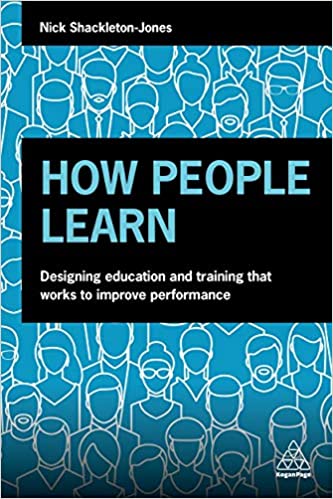I have been calling myself an L&D professional for years and I recently realised that whether people ‘learn’ or not, is not really important to me; what I actually care about is that they perform better.
So, what does that mean for this profession called Learning & Development? I think it means we should start calling it Performance and Development and change our mind sets to meet that challenge.
When we talk about learning in organisations, we are probably referring to two very different (but related) things:
-
Learning new stuff – facts, theories, principles, processes, best practices, information; and
-
Learning a skill – like having a coaching conversation, using persuasion to better influence someone, doing a pivot table in Excel, or making a mitre joint in woodwork (my own little hobby).
And if our goal is to improve performance (and if it isn’t then what are we doing?), then we must be clear about what sort of outcome we want to have at the end. Do we want people to know more stuff, or do we want them to be able to do things differently?
Learning new stuff is all about memory and I believe that the days of having to rely our memories to do this are over.
Try this to prove it:
Pick up your phone and say. “Hey Siri / Alexa what are the best principles of being able to influence someone?”
There you go, we have just eliminated the need to train anyone to remember what Cialdini’s 6 Principles are; I don’t even need to remember his name.
And if you follow the cue you will find a great 10-minute video which explains them very simply and clearly, just when I need it.
Nick Shackleton-Jones talks about the “elimination of learning” in his great book How People Learn. Nick encourages us to move from “courses to resources”; having the ‘stuff’ we need to remember available to us at the point we need it, whether that be a checklist, an “i” or “help” button next to a field, or an app that provides us with useful and timely information on leadership issues through AI powered nudges.
Right now, we literally hold in our hands all the information we need to do whatever we want – we never need to ‘learn’ another fact.
What we need is the scaffolding around us to help us develop new skills and perform better.
Improving your performance at a particular skill takes effort, time and, most importantly, practice. To go from “I can’t do it” to “This is OK, I’m not bad at this” is a lot less than the 10,000 hours quoted by Gladwell and is more like 10-20 hours of practice (see Josh Kaufman). Both Gladwell and Kaufman talk about the importance of deliberate practice and getting feedback. Gladwell has also opened up the exciting field of how we can make practice more efficient and effective.
So, if L&D (P&D) is serious about improving performance, what does it need to do to change its mind set and improve its own performance?
Well, I would like to give L&D some feedback … in the classic style – Stop, Start, Continue.
I would like to stop...
- Thinking that training is the solution. If we start with that mind set, then we are trying to solve every problem with a hammer. However, this is not just L&D who need to change this mind set it’s HRDs and MDs who look to the L&D function as the “training provider”. It’s our responsibility to change that mind set, calling ourselves Performance & Development might help.
- Focusing on content. We do not need to recreate the internet on our intranet, or LMS (ref. Shackleton-Jones). I once thought that L&D had a job in being a curator of the right sort of content, but I just don’t think that one person with Learning in their title is clever enough to decide whether Cialidini’s 6 principles of persuasion, or the Situational Influencing Model is right for all people in our organisation. Social learning platforms may help with a range of people sharing their own views, but L&D as “Queen of the Curators” is nonsensical.
I would like to start...
- Being Performance Consultants. Our first question should always be, “In what way do you want people to perform better/more efficiently/differently?” We must ‘start with the end in mind’ to quote Covey. We need to push back when the first conversation that we have with a (internal) client involves them saying, “We want you to design and deliver a really powerful, interactive training course on X”. And if they can’t articulate what needs to change, then we need to help them using the tools of performance consulting.
I would like to continue...
- Embracing technology, but more flexibly. Using digital to improve performance is not a once-and-done job; buying your LMS, linking it to you HR system and filling it with content is not using digital effectively. The digital ‘learning’ market is vast, with many providers delivering particular expert solutions. Tech such as the xAPI now enable us to capture data of an incredibly wide and varied range of learning experiences and all good digital providers should be able work with and integrate with others. L&D needs to do their research to find the best expert suppliers who can provide the best possible digital solution and then integrate that into a supplier eco-system. [And a word to suppliers, we need to get better and more open to partnering.]


